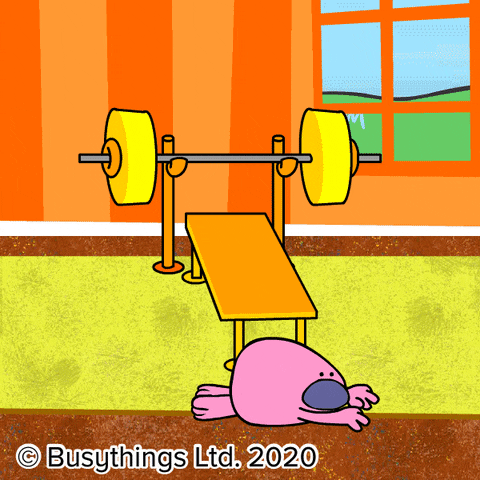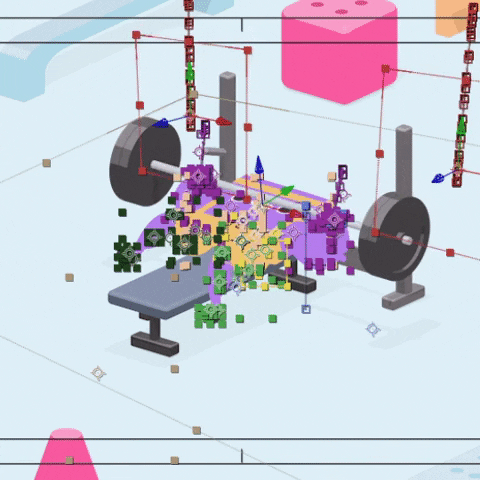Proper Bench Press Form - Does It REALLY Matter?
Some of the most consistent arguments against lifting the butt bench pressing are not having enough strength, cheating the lift, or that it is completely pointless. These are a few of the big arguments against lifting the but when bench pressing.

Well if we are talking about it, what actually happens when bench pressing and lifting the butt. So benchers take a slow eccentric and when we get down to our chest, will come up and get that big, big hit drive. And as a lift starts to grind out, benchers will really start to lift their butt. But (pun intended) does this actually hinder strength gains? Can it lead to issues? And where does this originate from?
Well, a lot of butt lifting has been made popular by big-time shot putters. There are videos of Werner Gunthor (3x world champ, Olympic bronze medalist) back in the day lifting his butt. Growing up, I was a butt lifter, especially when I started to grind through weights. My high school coach called it the shot put bench press.
But what is actually happening from a biomechanical aspect so we can break down if the movement is hindering growth or can it actually improve different aspects we are trying to train?
1. Can You Use More Weight When Lifting Your Butt On The Bench?
So if we take the bar off with the butt off the bench, we are shortening the range of motion slightly, about one to two-inch. We will also get an extra hip drive. The hips are extended with the glutes and quads extending the butt off the bench. The hamstrings are extending the pubic bone off of the bench. All of this provides a little bit more force to be driven to the shoulder while pressing.
The answer is yes: you can lift more weight when lifting the butt in the bench press.

2. Does This Lead To More Internal Rotation And Problems?
This is more of a gray area. Think about the hips being higher, shortening the range of motion. And yes, I will be internally rotated a little bit more. So can that lead to injuries or problems? Yes, anything in lifting can lead to injuries or problems.
Executing a perfect lift can still lead to injury if they sneeze and get out of position. If actually lifting the butt but maintaining upper body stability, working on thoracic mobility, and doing dumbbell and banded external rotation exercises, you’ll probably be okay. Still, be aware that there can be issues around the internal rotation. This can even happen with the butt down.
3. Does It Help With Strength Gains?
We have to remember that more weight can be used because there is more hip drive and a shorter range of motion with the butt lifted off the bench.

Being able to use more weight helps us get stronger. Say my best bench press is 500 lbs and I want to work at 90-95% and hit a few doubles. That means I’m going to be lifting 460 to 480 lbs, somewhere in that realm. I can improve by using greater eccentric overload, with the butt lifted, I can handle more weight because I’m shortening that range of motion.
In addition, throws coaches like to use pads. This allows for even more weight to be used in addition to the butt being lifted off the bench. In turn, we can train the amortization period, that stretch-shortening period. Now, from the greater eccentric overload, we can hold more weight and train and strengthen the tricep, which is pivotal to the lift itself and other sports. The pad also gives a little bit of a bounce while lifting the butt. The pad also gives a slight shortening of the range of motion too.

The slow eccentric triggers more high threshold motor units to be activated. Then as the muscles lengthen the nervous system fires like crazy and we can drive up very, very rapidly. This shows that the butt lift does help with strength gains because of the longer, heavier eccentric. And if the pad is used, the drive can be improved through the concentric action as well.
4. Why Do Athletes Do This?
One reason athletes might do this is that they have poor bench press technique. They have never been taught how to have their feet anchored into the ground, squeeze the bench with the glutes, and hug the bench with the shoulder blades.
At Garage Strength, we have athletes that lift their butts. But they don’t lift their butt at weights lower than 90%. But when they get to 95%, 100%, or 100%+ and are maxing out, they just want to get the weight. They start to grind. They throw their technique out the window. Yes, there can be a lot of compression in the lumbar spine, and yes, with chronic use, someone could develop a parse fracture. This can also happen in other sports as well. It happens with a lot of different sports. We still need to be aware of this as a potential issue.

Now if we are dealing with mobility and handling the hip girdle properly outside of bench pressing, as well as teaching bench pressing properly, it is likely not to be a big deal when the athlete goes for big weight. Just make the athlete aware that technical progress needs to be consistently made.
5. Should You Train Butt Lifting?
Shot putter? It’s not that bad to train the butt lift. Wrestling? It’s not that bad because they extend their hips to apply a lot of force.
We do have to look at the butt lift in the bench press as a tool. Try to improve the traditional bench press technique over and over again. Sometimes, lifting the butt or using a pad is okay because we are trying to strengthen the triceps, strengthen the movement through the eccentric muscular action, or try to really drive and work through the sticking point right off of the chest. There are a few different why the butt lift in the bench press should be done. Again, look at it as a tool.
Recap
We have Olympians who lift their butts when training the bench press. Ideally, we want to focus on improving the traditional bench press technique, but know the pros and cons of lifting the butt. Namely, that it is a potent tool that can be used to increase those big-time strength gains.
DANE MILLER
Dane Miller is the owner and founder of Garage Strength Sports Performance. He works with a select handful of clients on building comprehensive programs for fitness and nutrition. Several times a year he leads a workshop for coaches, trainers, and fitness enthusiasts.


